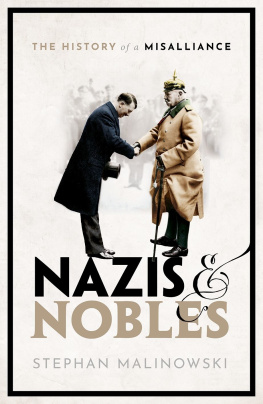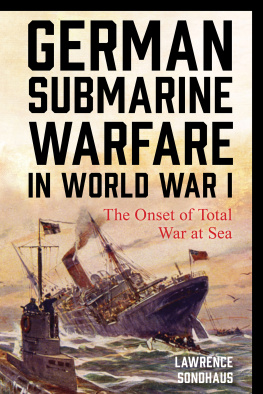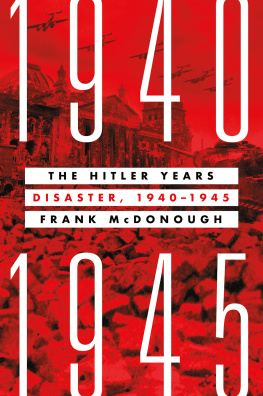Germanys Defeat
in the First World War
The Lost Battles and Reckless Gambles
That Brought Down the Second Reich
Mark D. Karau

Copyright 2015 by Mark D. Karau
All rights reserved. No part of this publication may be reproduced, stored in a retrieval system, or transmitted, in any form or by any means, electronic, mechanical, photocopying, recording, or otherwise, except for the inclusion of brief quotations in a review, without prior permission in writing from the publisher.
Library of Congress Cataloging-in-Publication Data
Karau, Mark D., 1969
Germanys defeat in the First World War : the lost battles and reckless gambles that brought down the Second Reich / Mark D. Karau.pages cm
pages cm
Includes bibliographical references and index.
ISBN 978-0-313-39619-9 (hard copy : alk. paper)ISBN 978-0-313-39620-5 (ebook)
1. World War, 1914-1918Campaigns. 2. World War, 1914-1918Germany. 3. Command of troopsHistory20th century. I. Title.
D531.K352015
940.40943dc232015004932
ISBN: 9780313396199
EISBN: 9780313396205
19 18 17 16 151 2 3 4 5
This book is also available on the World Wide Web as an eBook.
Visit www.abc-clio.com for details.
Praeger
An Imprint of ABC-CLIO, LLC
ABC-CLIO, LLC
130 Cremona Drive, P.O. Box 1911
Santa Barbara, California 93116-1911
This book is printed on acid-free paper 
Manufactured in the United States of America
For Katie
Contents
Introduction
On November 11, 1918, the guns fell silent around Europe. The First World War was over. The armistice that took effect that day was an admission of defeat by a German nation that had seen its allies collapse over the previous eight weeks. Yet, when the armistice was signed German armies still stood on foreign soil in France, Belgium, and on much of the area that had once belonged to the tsars of Russia. Just eight months earlier, the Germans had launched an offensive that at first seemed likely to carry them to victory, yet now a new German government was admitting defeat. For many Germans this turn of events was inexplicable. How could Germany, after all the sacrifices, have actually been beaten? The immediate response in some circles of German society was to argue that the German armies had been stabbed in the back by the collapse and revolution at home. This became known as the stab in the back legend, or the Dolchstoss Legende, and it poisoned German politics for two decades, helping to create an environment in which the Nazis were able to come to power. In the decades since the Second World War historians have taken pains to debunk the Dolchstoss Legende and to demonstrate that the German army indeed was finally beaten in the late summer and fall of 1918 and that it was only the German high commands call for an armistice that kept Allied forces out of Germany. The current explanation for German defeat concentrates on the tactical, operational, and technological changes that were made by the Ententes forces over the course of the war and that finally allowed them to break the German defenses and defeat the German army. The question of why the Germans lost the First World War is not, however, a simple one. The defeat on the battlefield was only one element in a complex picture. There were also massive problems on the German home front caused largely by declining supplies of food and fuel. The shortages reduced the standard of living of most Germans and eroded their support for the war. The German army itself, which was slowly being worn down by its enemies with their larger reserves of both manpower and materiel, also suffered from these shortages; therefore these reasons need to be accounted for in any explanation of German defeat. Since Germanys defeat in the First World War set the stage for much of the history of the next 70 years, the reasons for that defeat need to be reexamined. This work is an attempt to begin that reexamination.
Factors and Decisions
There were a number of factors that played a role in Germanys defeat. Some of these factors were obviously of a military nature: the changes in technology over the course of the war that Germany was unable to keep pace with (i.e., the tank); defeats on the battlefield, both of German armies and of Germanys allies; the failures of the German navy; and so on. Yet these military factors by themselves did not bring about Germanys defeat. There were a number of other, nonmilitary factors that also came into play. Social factors, most importantly the collapse of social cohesion on the home fronts of the Central Powers, played a key role as well. Economics certainly mattered; the British blockade of German trade was especially important. All of these factors need to be examined and explained if we are to truly understand why the Central Powers lost the First World War.
Some scholars have argued that German defeat was simply inevitable; that the military and economic forces arrayed against the Central Powers were too much to overcome, especially after the United States entered the war. Although the simplicity of this argument is appealing on the surface it is not really much of an explanation. Few things are actually inevitable in history. Human factors and chance always play a role. In particular, the inevitability argument does not take into account the critical decisions that were made by Germanys political and military leaders both before and during the war nor does it address why some battles were won and others lost and why those that were lost proved to be so much more important.
In order to adequately explain Germanys defeat it is necessary but not sufficient to examine the underlying balance of economic and material factors that could lead one to conclude that the war was hopeless from the start. A full explanation though must also examine the critical decisions that were made by the German high command and government at key moments in the war. I will argue in these pages that the outcome of this war was far from inevitable and that the Germans had opportunities for victory; the institution of the British blockade and the effect it had on both German society and the German economy; the utter failure of the High Seas Fleet and the corresponding turn to submarine warfare in 1915 and, disastrously, again in 1917; the disastrous Western Front battles of 1916 (Verdun and the Somme); and the failure of the 1918 offensives. All of these events, decisions, and factors played into Germanys final defeat.
Germanys first problem was that it took on a coalition whose material resources dwarfed its own and the most important member of which, Great Britain, was largely invulnerable to German pressure, at least until technology briefly changed that equation. Furthermore, once Great Britain entered the war, the Royal Navy implemented a blockade of German trade that caused the Germans to make some difficult immediate choices (such as whether to use nitrates for munitions or for fertilizer) and which slowly began to strangle the German economy, especially the food supply.
However, none of this came as a surprise to the German high command. Germans were aware of the overall economic inferiority of their alliance and concluded, in the years before the war, that Germany needed to win a quick victory over one of its opponents in the early part of the war. The German scheme to win that quick victory is popularly known as the Schlieffen Plan. Designed to win a rapid victory over France by destroying the French army in a great encirclement battle modeled on Hannibals victory at Cannae, the plan was seriously flawed from the start and when the German armies were turned back in the west, first at the Marne and then at Ypres, the plan failed. There would be no quick victory. Rather the war would be a long and difficult struggle.
Next page












